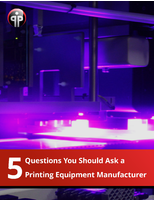Mezzanine Cards use FPGAs for various I/O combinations.
Share:
Press Release Summary:
Based on Cyclone FPGAs, Universal Submodule concept is available in P699 XMC and P598 conduction-cooled PMC models. Model P699 uses Cyclone III FPGA with 24,624 logic elements and 4 MB Flash memory, while Model P598 features Cyclone II with 33,216 logic elements and 2 MB flash. Nios soft core processor, which features 32 MB of DDR2 SDRAM main memory, is implemented on FPGA. Different IP cores allow user to change functionality of either card without hardware modifications to main module.
Original Press Release:
MEN Micro Inc. Extends FPGA-based Universal Submodule Concept to Include XMC and Conduction-Cooled PMC Formats for Increased Time-to-Market
AMBLER, Pa. January 2008 - MEN Micro Inc., a world-renowned provider of embedded computing and I/O solutions for demanding industrial, mobile and harsh environment applications, now offers its FPGA-based Universal Submodule (USMT) concept on two additional mezzanine cards; the P699 XMC and the P598 conduction-cooled PMC (ccPMC). All products based on MEN Micro's USM concept use one or more IP cores in an FPGA to help designers easily and quickly turn individual I/O requirements into production-ready products reducing design time and costs.
The use of Cyclone FPGAs on the two new cards enables exceptional I/O combinations in a very small space for moderate volumes and at a low cost. The P699 XMC uses a Cyclone III FPGA with 24,624 LE (logic elements) and the P598 ccPMC features a Cyclone II with 33,216 LE.
Different IP cores allow users to change the functionality of either card without any hardware modifications to the main module. The corresponding line drivers are implemented on the individually designed USM submodule that plugs into the main XMC or ccPMC. Because they function independently of other electronic components, the IP cores provide trouble-free, long-term operation over the temperature range of -40°C to +85°C (-40°F to +185°F).
A Nios soft core processor, which features 32 MB of DDR2 SDRAM main memory and 2 MB (P598) or 4 MB (P699) Flash memory, is implemented on the FPGA providing local intelligence to the main module.
A USM development package includes a main PMC with a USM submodule, test hardware and an FPGA package with a Nios CPU, memory control, connection to the PMC, Avalon/Wishbone bridges and detailed documentation. The Wishbone Bus Maker tool from MEN is included for development of IP cores on the standard Wishbone bus. The Nios core and the development of IP cores on the Avalon bus require Altera 's Quartus II design environment including the SOPC builder.
MEN Micro also offers design and implementation of IP cores, design of the USM submodules as well as production of main modules and submodules. In addition to the two new cards, the USM Universal Submodule I/O family also consists of the P599 PMC and the M199 M-Module.
Pricing for a USM development kit starts at $2,993. Delivery is two weeks ARO.
P699 XMC: http://www.menmicro.com/products/default.asp?prod=15P699-
P598 ccPMC: http://www.menmicro.com/products/default.asp?prod=15P598-
For additional information, contact Stephen Cunha, MEN Micro Inc., 24 N. Main Street, Ambler, Pa. 19002; Phone: 215-542-9575; Fax: 215-542-9577; E-mail: Stephen.Cunha@menmicro.com.
UPCOMING TRADESHOW: Embedded World, Nuremburg, Germany; February 26-28, 2008; Hall 12 Booth 545
About MEN Micro Inc.
Since 1982, MEN Micro has focused on innovation, reliability and flexibility to develop standard and custom board-level solutions that are used throughout industrial embedded applications and harsh environments.
The company provides a robust offering of highly reliable embedded computing and I/O solutions that employ the highest technology and innovations. In addition, MEN Micro offers exceptional custom development and environmental qualification services in accordance with industry standards. The company's standard product range contains more than 100 different computer boards and systems with corresponding BIOS, BSP and driver software based on different PowerPC and Pentium platforms.
The company has more than 180 employees and is a member of several industry associations, consortiums and alliances.




